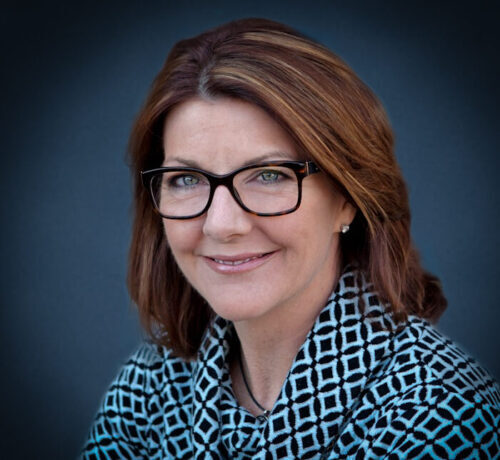Insights from Anella, our Chief Sales Officer
Recently we had a conversation with Anella Wetter, Chief Sales Officer at 95 Percent Group. Anella is passionate about bringing literacy into every child’s life—and for good reasons. Growing up on a rural farm, Anella learned early on how books can transport you to new worlds. She remembers a particular librarian who changed her life, helping to make reading a special experience for her. She also thinks big about what reading means in society more broadly: “The power of reading is that, by design, it opens up your world to the power of being part of a democracy and fully participating in it,” she says. Read on.

What drew you to 95 Percent Group?
There were two specific things. First is Dr. Susan Hall. Her work has been profound, and her story is compelling from many vantage points, including the vantage point of a mother who wants to make the world better for her child. I see my work at 95 Percent Group as doing my part in carrying forward her important work.
Second, and more globally than that, I was a teacher for more than two decades. Education is my life’s work. Of all the things I have been able to experience in my career, the experience that is closest to my heart is a child’s joy of reading. I grew up in rural Kentucky on a big farm, isolated geographically. Reading took me places I could have never gone. The most wonderful elementary school librarian, who lived two farms away from me, would greet me warmly on library day with a special book, saying: “I saved this book on my shelf just for you!” My world expanded immensely through books. Now it is such a gift in my life to ensure that every child has the possibility of seeing the world more broadly and more fully.
What are you most excited about?
I am most excited about the momentum that is palpable in the application of the science of reading. Today we have a broad community of stakeholders moving in the same direction, creating this momentum: educators, researchers, thought leaders, superintendents of schools, parents. And that is powerful.
A superintendent once said to me: “This district is committed first and foremost to literacy. We are unrelenting until every child reads in third grade.” The drive for literacy success can be that unifying. There haven’t been many times when I have felt such unification around a singular focus as I have felt around every child’s right to read.

Talk about the current state of national reading scores. Why is this moment so important?
The current headlines are the same as before. We have not seen massive changes in student reading proficiency in 40 years. But today we know better, and we know the way forward. It is so important in this moment to make a difference. The question is: Do we have the collective will, as a coalition united for change, to unequivocally ensure that high-quality, science-based, Tier 1 instruction for all students is guaranteed? Change is hard for humans, and this specific change means a shift in direction and focus. Inherently it means something we were doing wasn’t right, which is hard. But that’s exciting too because we have an opportunity now to get it right.
What are key pain points you hear from schools today?
The number one pain point for schools is how to operationalize change. And it’s important to name one of the current challenges within that. We have a massive teacher shortage in our country. Districts are struggling to hire, retrain, and retain new teachers. We also have a dearth of substitute teachers, which has impacted many things including when professional learning can occur for full-time teachers. When we have the skills to be highly competent in our job, our satisfaction and self-perception goes up. So we need to offer, in the school environment, opportunities for teachers to become highly expert as they bring effective instruction to their content areas. We need to help them see results and see the non-reader become a reader. If that experience were to happen for every elementary school teacher, every year, for 95% of their students, it could help prevent teachers from fleeing. It is that impactful.
Another pain point is in having the right tools to provide high-quality, Tier 1 instruction. I worked with administrators in a district, for instance, where more than 50% of students were identified as needing intervention services. Imagine the challenge that creates on a regular school day schedule. The pressure on staff and complexities are immense. It comes back to how to take a wide and broad approach to whole-class instruction. If it is done right and done well, it is a game changer for students and for how the day is structured.
Finally let’s state the obvious: Teachers should be paid better. We have created an acceptance of teaching as a low-wage profession. It’s unconscionable. A teacher is often one of the most impactful people in a child’s life. We need to create a work environment where schools aren’t forced to do more with less staff and where teachers want to be there. That includes better pay.
Do you have a positive story to share about change?
I was at a school site last spring observing a teacher provide Tier 1 instruction in her second grade classroom. At the end of class, she turned to me in the hallway and said: “I have been teaching for seven years. I had always wanted to be a teacher, so I am grateful to be doing this job. After implementing 95 Percent Group and using these resources since the fall, I finally understand how to teach children to read. And I can’t believe until this year that I had not known how to do that well.” She got really tearful and then said: “There were so many students in my previous classes who I couldn’t help.” Both her remorse and gratitude were really present.
What advice would you give to schools?
I would give school leadership the advice to be brave and create a non-negotiable determination that they will follow the science of reading and science of implementation accordingly. Be in relentless and dogged pursuit of the singular focus of having 95% of children reading at grade level by the end of 3rd grade. Focusing on that goal will create so many positive byproducts because students will bring that important skill set to all of their learning across subject areas.
I would also encourage schools to create more opportunities for teachers to lead and mentor one another and to consider how all roles in a school system can be designed to have a persistent connection to the discipline of teaching. For instance, I have seen some school districts where superintendents teach one class a day. It’s an important way to honor and understand better the role of teaching.
Any final thoughts?
I would underscore to schools that evidence-based practice and evidence-based instructional resources matter. Don’t get confused by the smoke and mirrors that some companies put up. Research articles written by a company’s employees, for instance, are far different from independent, third-party, unbiased efficacy studies on products. Our children’s future is at stake, and we need to know the difference between what works and what doesn’t.
One final point is in John Dewey’s words. He wrote about the role of education in a thriving democracy and said that knowledge is power. To be fully actualized citizens, we need to keep learning, challenge established information, and make informed choices through critical thinking skills. Even more to the core of my own “why” is this: The power of reading is that, by design, it opens up your world to the power of being able to fully participate in democracy.
Learn More
Are you interested in learning about how you can bring an effective and efficient structured literacy approach, grounded in the science of reading, to your school or district? Contact us today.



